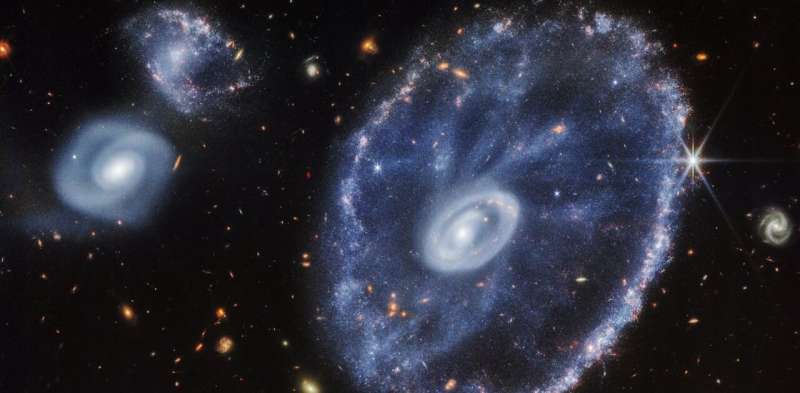The Daily Observer London Desk: Reporter- John Furner
Imagine a universe with extremely strong gravity. Stars would be able to form from very little material. They would be smaller than in our universe and live for a much shorter amount of time. But could life evolve there? It took human life billions of years to evolve on Earth under the pleasantly warm rays from the Sun after all.
Now imagine a universe with extremely weak gravity. Its matter would struggle to clump together to form stars, planets and—ultimately—living beings. It seems we are pretty lucky to have gravity that is just right for life in our universe.
This isn’t just the case for gravity. The values of many forces and particles in the universe, represented by some 30 so-called fundamental constants, all seem to line up perfectly to enable the evolution of intelligent life. But there’s no theory explaining what values the constants should have—we just have to measure them and plug their numbers into our equations to accurately describe the cosmos.
So why do the fundamental constants take the values they do? This is a question that physicists have been battling over for decades. It is also the topic of the second episode of our new podcast series, Great Mysteries of Physics—hosted by me, Miriam Frankel, science editor at The Conversation, and supported by FQxI, the Foundational Questions Institute.
“We don’t know whether some of those constants are linked deep down. If we had a deeper theory, we’d find that they’re not actually independent of each other,” explains Paul Davies, a theoretical physicists at Arizona State University. “But we don’t have that theory at the moment, we’ve just got all these numbers.”
Some physicists aren’t too bothered by the seemingly fine-tuned cosmos. Others have found comfort in the multiverse theory. If our universe is just one of many, some would, statistically speaking, end up looking just like ours. In such a universe, says Davies, “beings will pop up and marvel at the fact that they live in a universe that looks like it’s rigged in favor of their existence, but actually we’re just winners in a cosmic lottery.”
But many physicists, including Davies, are holding out for a more fundamental theory of nature which can explain exactly what values the constants should have in the first place. “I usually say two cheers for the multiverse, cause I think it’s better than just saying God did it,” he argues, adding that to get to three cheers you need a more complete theory.
That said, in the absence of a deeper theory, it is hard to estimate exactly how fine-tuned our universe is. Fred Adams, a physicist at the University of Michigan, has done a lot of research to try to find out, and he has discovered that the mass of a quark called the down quark (quarks are elementary particle which make up the atomic nucleus, for example) can only change by a factor of seven before rendering the universe, as we know it, lifeless.
But how fine tuned is that? “If you want to tune a radio, you have to know the frequency of the signal to 1%—and 1% is much more tuned than a factor of seven,” explains Adams. “So it’s much harder to tune a radio than to tune a universe.” Intriguingly, his work has also shown it is possible to get universes that are more life-friendly than ours. “You can make a more logical universe that produces more structure, potentially produces more habitable environments, and I guess by implication supports life better,” he explains.
There are experiments which could help settle the fine-tuning debate. For example, some projects are trying to find out whether the constants we see around us really are constant—perhaps they vary ever so slightly over time or space. And if that were the case, it would be a blow to those who believe the cosmos is fine-tuned.



